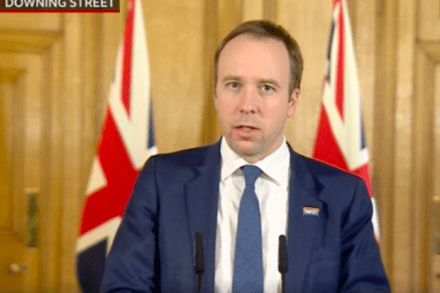Matt Hancock’s good news day
After weeks of speculation over whether Matt Hancock would meet his target of 100,000 daily tests by the end of the month, the Health Secretary today had good news. He told viewers that not only had the target been met – it had been done with over 20,000 tests to spare: 122,346 tests in total were carried out yesterday. In his comments at the press conference, Hancock appeared at times to be giving an acceptance speech at an awards ceremony. He thanked the multiple government figures, outside organisations and health workers who had made this feat possible. Given the heat Hancock has received in recent weeks both in the media and




















